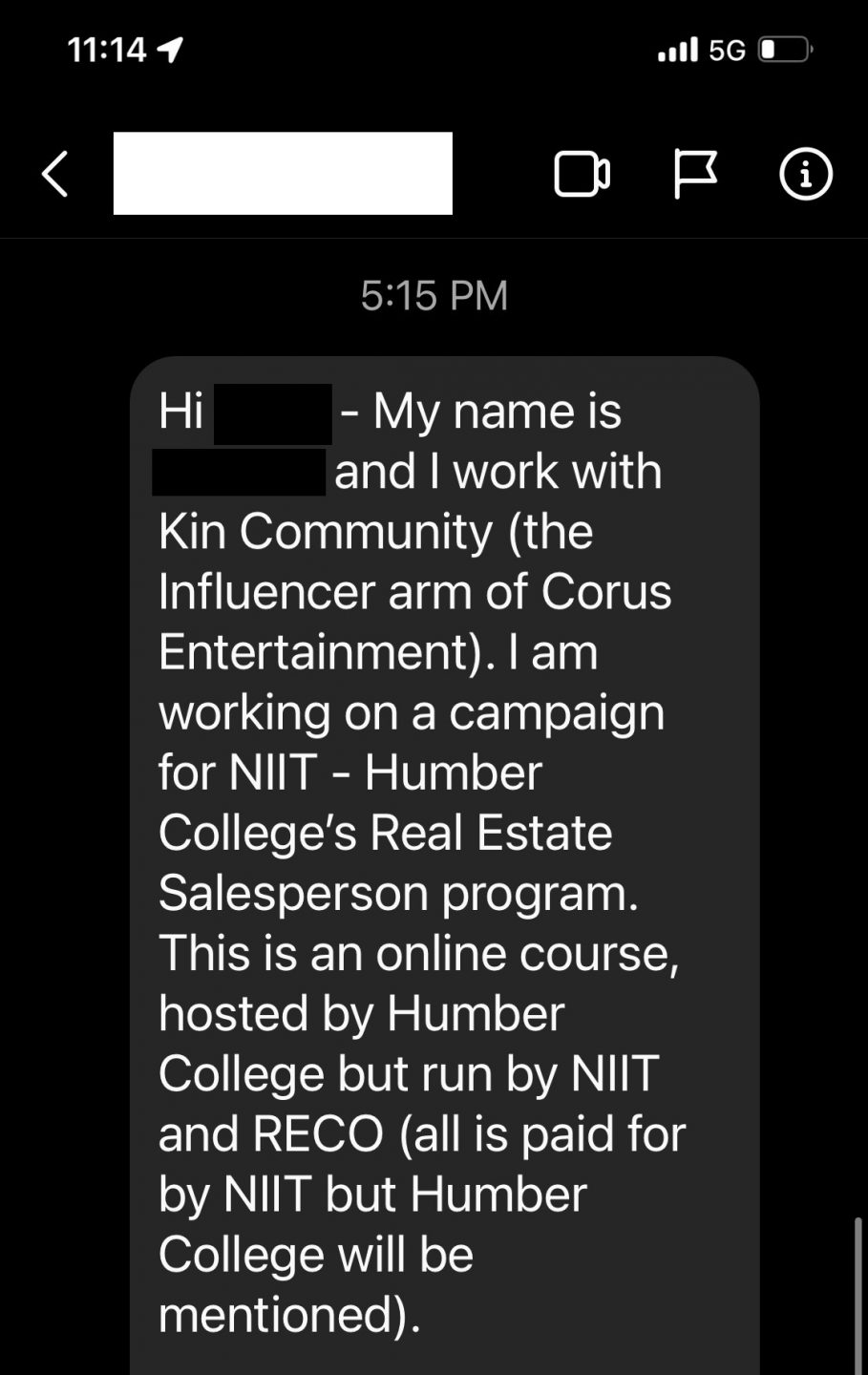This is now my, what, third or fourth blog post on this topic?
I didn’t want to write it.
I still don’t.
But when somebody shows you a “smoking gun” while a bunch of gold miners simultaneously shout “EUREKA,” what are you supposed to do? Just keep a lid on it?
I might make this blog post short and sweet. For a change.
Er, sweeter and shorter. I think this is a case of “less is more.”
So allow me some leeway with the preamble, then a little background on “the bigger story,” and then I’ll show you my smoking gun.
For the last three years, I have lamented the number of new agents entering the business.
Now, I was obviously a new agent at one point, so you’re fully within your right to say, “David, you can’t harp on new agents when every agent was ‘new’ when they started,” and I hear you, I do. But, not to sound too cliche, or too much like an old man: it was different back then.
I started my real estate courses back in 2003 when there were about 20,000 licensed agents with the Toronto Real Estate Board. I started in real estate at 23-years-old when most agents were in their 60’s. I started at Bosley as one of only two agents under 40-years-old. I started in real estate when the average home price in Toronto was $293,067.
But I started in real estate when it was still a “profession.”
I obtained a Bachelor of Commerce with a minor in Economics and wanted to enter a true “market.” The financial markets were exciting, but every young 20-something was already doing that. How I ended up in the real estate market instead, is a story for another day.
But I was a young professional. I had a business background. I wore a suit every day. I was a part of every training session that my company offered, and beyond that, I took every course I could find about real estate, investing, property management, business, or anything even loosely associated with real estate. I read dozens of books. I listened to audio cassettes in my car. I worked morning, afternoon, and evening, and when I say, “I worked eighty hours a week,” that’s not an exaggeration.
Real estate was a profession. It attracted professionals.
And today?
It attracts dreamers and schemers.
The bar for the average real estate agent has never been lower, and I’ve never been more frustrated.
There are now 65,000 real estate agents licensed with TRREB, and I routinely rank in the top 75-100, which I divulge here and now not because I need admonishment, but rather so the person reading this can understand why and how I’ve come to hold such strong opinions on organized real estate, and why, if I dare say so, my “opinions” are actually “facts.”
Simply put: there are far too many real estate agents licensed in the City of Toronto.
And this is a problem, why?
I’m not frustrated because there’s now too much competition among agents, if that’s what you’re thinking. Truth be told, the more novice, inexperienced agents there are out there, the better the top agents look.
But it’s also not because these agents need to make a living, and many don’t. That’s nobody’s problem. Every individual needs to be responsible for his or her own livelihood, and the fact that an overwhelming majority of licensed real estates can’t generate a true income isn’t a problem that needs dealing with.
The true problem, folks, is that the more agents that are licensed, the lower the skillset of the “average” agent.
It’s simple dilution. It’s impossible not for this to happen.
If you took the National Hockey League and expanded from 32 teams and 800 players to a league with 64 teams and 1,600 players, those additional players from 801st to 1,600th will represent far less-skilled players than those from 1st to 800th.
So what happens to the league? The quality of play diminishes. The consumer suffers.
In our real estate industry, far too many people who have no business working in the industry, have been licensed.
Many of these people are part-time, which I remain convinced makes it impossible for them to perform their job, and many do not have any business acumen whatsoever. Many can’t do basic math, or speak basic English. Many have zero interpersonal skills, many have no social skills, and many lack the ability to think critically.
What does that mean? Think critically?
If rain was dropping on your head, drip by drip, and you looked up, deduced that there was a small leak above you, and realized this is why rain is dropping on your head, you would be inclined to move two feet to your left or right.
That’s critical thinking.
Many new agents, regardless of age or demographic, cannot think critically.
They cannot get from A to B, because it’s the in-between that confuses them.
These are the life skills that are not taught in school or university anymore, or learned in the “school of hard knocks,” because education at most levels have done away with anything difficult. Topic for another day and one that I would love to cover…
You’ve already heard me, multiple times this year on TRB, talk about how difficult it is to transact with new agents because they have no clue what they’re doing. But it’s not just about pricing in respect to the lack of knowledge and experience; it’s with respect to common sense.
And that’s the problem – one of many, with education at Humber College. They don’t teach any real-world application. In fact, they’re not allowed to. Part of the reason why OREA fell out of favour with RECO, according to my colleague who was an instructor with OREA, was that the course wasn’t “standardized” enough. Today, the course is so standardized that instructors aren’t allowed to stray from the textbook.
So how does a new real estate agent open a lockbox? That isn’t taught.
How does a new real estate agent type up an offer? They aren’t allowed to use TRREB forms at Humber courses, so that isn’t taught.
Should a new agent call a listing agent six times between 5pm and 6pm, on a Saturday night? That’s common sense, but that sure isn’t taught either.
So all this is to question how RECO is doing with respect to their mandate.
RECO’s mandate?
“The Real Estate Council of Ontario (RECO) protects consumers in the public interest by promoting a fair, safe, and informed marketplace and enforcing the rules that real estate salespeople, brokers, and brokerages must follow.”
So how in the world is this accomplished when RECO outsources education to a company called NIIT, who then provides coursework for Humber College to teach?
And how in the world is this being accomplished when so many new agents are being licensed?
If anything, RECO should be trying to increase scrutiny in education, if not overhauling the entire system.
Instead, RECO, apparently, is trying to get as many people to enroll in real estate courses as possible!
No!
Can’t be true, right?
Except that, sadly, it is.
Here’s my smoking gun in the form of a public relations firm reaching out to a colleague:


I received these text messages on Wednesday night, and I felt sick.
Then I felt angry.
Then I felt dirty.
Then I felt sad.
The three stakeholders in real estate licensing and education, Humber, NIIT, and RECO, are all mentioned in that solicitation for a paid opportunity to make real estate look cool, in attempts to solicit new entrants to real estate education.
“…how successful you can be if you take the course.”
“…the perks of being a real estate agent.”
Puke in my mouth!
We’ve got an “influencer arm” of an entertainment company reaching out to young, hip, cool, Tik-Tokking real estate agents, offering to PAY THEM to talk about how successful people can be if they sign up for their real estate course with Humber College.
Maybe shoot a commercial featuring the successful agent driving a Ferrari while lighting a cigar with burning hundred-dollar-bills?
This is disgusting. It’s absolutely appalling.
It’s the complete opposite of what RECO should be doing, and it tells me that Humber College is simply a business, trying to generate as much money as possible, and RECO, by association, is doing the exact same thing.
We have a massive problem in organized real estate with inexperienced, unqualified agents who are “representing” Ontario consumers in the purchase and/or sale of real estate, and instead of RECO looking to monitor complaints, enforce discipline, implement higher qualification standards, strengthen education, and raise the bar for professionalism in the industry, RECO and its other two stakeholders are busy finding ways to get more and more people enrolled in courses at Humber College.
I spent all day Friday ranting about this to whoever would listen. But who the hell has sympathy for any real estate agent, for any reason, in 2022?
Those two text messages are smoking guns. They prove what I’ve been most afraid of all along: that the goal is to license as many people as possible, whereas the goal should be to focus on preparing agents to transact in the industry.
I recognize that I will win very few favours with this blog post.
It’s giving the public more ammunition to hate on real estate agents, which might not bode well for me, since I am a real estate agent, but will also draw ire from other agents out there.
But what are my other options?
Sit here and say nothing?
Change will not happen on its own. There must be an impetus for change, and while many of you are ten steps further down the road, hating on real estate agents, awaiting the Uberization of the industry, excited for apps and simulations to replace agents, I firmly believe in the role of agents in this industry, and that too is a topic for another day. But right now, we need to stop this disease from spreading, and it starts right now with what I consider to be a “smoking gun” posted above.
Do not be surprised if you read about this in the media in the coming weeks. I, for one, can’t wait to see the results of some investigative reporting.
Folks, thank you for reading today and this week, let’s all enjoy the sunshine out there this weekend, and I’ll see you back here on Monday!
































Kevin
at 8:07 am
It always comes down to money. RECO is the Ontario government and they need revenue to keep themselves bloated like all levels of government. They’re just doing it through real estate education.
Paul
at 8:32 am
One of the biggest problems with the majority of agents in the industry being unqualified or uninterested is that it lowers the perception of the industry as a whole. I feel like this where the negative perceptions of real estate agents and calls to overhaul or regulate originate from. Most people don’t feel like they got good value from the agents they have worked with. People are frustrated because it feels almost impossible to interact with a professional and qualified real estate agent. The list of completely ridiculous things I’ve heard agents say or seen them do is far too long.
Many other professions have different levels of certification. I’m thinking of electricians who have many different licenses, medical doctors can be general practitioners or specialists, engineers and accountants are required to achieve certifications to perform tasks within their industries. These professionals also face recency requirements. They have regular testing and training or are required to practice to a minimum standard to remain qualified to continue to work in their industry.
It’s time for the real estate profession to adopt similar standards. I’m not saying that we need to banish agents from the industry who only complete a few transactions a year, but we need to make it more clear that they are not the same as their counterparts who are completing significantly more transactions and are working in the industry full time. An ‘accountant’ who only completes simple personal tax returns is not the same as an accountant who advises corporations on forward planning and strategy. A part-time agent should not be considered to be equal to one who works almost every day of the year. It needs to be simple to customers to know the difference. Part-timers should probably also have their level of participation in the industry limited. It seems like many agents are barely qualified to write property descriptions or offers to purchase, which are legal documents.
Improving the performance of participants in the industry benefits those with integrity and accountability and will ensure the long term success and possibly existence of the industry.
Jenn
at 9:21 am
Here here!!
Condodweller
at 10:22 am
While I agree with most of this, unfortunately certification and “continuing education” to maintain a certification is a business in and of itself where the purpose of the courses is mainly to generate revenue for the governing body. Often the requirements are total over kill.
I also think that there should be different levels of certification with targeted training for each. These should include one as a listing agent, buyer agent, self/family/friend agent etc. Most of all the training needs to reflect real life situations. I also agree with those who say becoming a RE agents should involve some sort of apprenticeship where they must demonstrate they are capable of conducting business on their own for each required step.
David Fleming
at 10:49 am
@ Paul
This is great, in theory.
But in practice, the same people responsible for licensing and education would be responsible for these designations, so they would be equally as meaningless and watered-down.
There are a lot of “designations” in real estate already. You see these next to the names of agents on MLS. But, excuse my negativity, they’re ridiculous.
Have you ever seen an agent with “CNE” next to their name? That’s “Certifed Negotiation Expert.” But certified by whom? And what qualifications must the person or institute doing the certification actually possess? I went down to Harvard Business School for a course on negotiating. Do you see me putting that next to my name? No. I’d be embarrassed to tell the world, “I’m in a business where I’m supposed to know how to negotiate, and I got a CNE designation that shows I was taught how to negotiate!” A friend of mine took the CNE course. She said the room was filled with people who can’t speak English and half the course was spent explaining what certain words mean. If that is what this designation provides agents with, you can imagine what all the others look like.
How about “ABR,” which is Accredited Buyer Representative? You needed a course to show you how to represent buyers? So what were you doing before this course? Were you not qualified?
Imagine RECO deciding, “We need more designations to differentiate one agent from the next.” It would look exactly like this.
Paul, you’re on the right track. Clearly something could be done, but what?
Go1Mr
at 8:57 am
These kind of stuff I have seen in many area where I live.
lr
at 9:09 am
Maybe when agents stop putting their face on their business card and stop using social media to advertise their social status and rather advertise their actual sales statistics the real estate agent industry may change. The industry has always been about fabricated perception “fake it till you make it” mindset. RECO is just adding to the already created culture of real estate agents.
Average Joe
at 9:34 am
Agents are salespeople, and sales is not a profession. Real estate already has a lot of certified people involved from engineering to trades to legal to accounting. In situations involving risk to human life or legal repercussions we rely on professionals with expertise in a specialized field. Some people may be surprised to learn that engineers, pilots and doctors don’t learn everything in the classroom either. There are many years of apprenticeship required to get certified.
Selling houses isn’t any more noble or highbrow than selling cars or appliances or advertising billboards or mutual funds. We are never going to see a nobel prize awarded for sales and marketing. And there will be many people who don’t care if their agent is dumb or has poor etiquette because agents are just listing gatekeepers and auctioneers at this point.
It’s extremely unlikely I would ever follow an agent’s advice in the same way I hand over control to a surgeon or an airline captain. Realtors are a marketing and paperwork service, so fumbling with a lockbox or being annoying to negotiate with are just low-stakes problems that don’t impact me much as a client. I don’t care if there are too many realtors or too many uber drivers. That will just sort itself out.
Bob
at 10:45 am
Sorry David but I do agree with Average Joe. There’s all sorts of incompetence in every single profession out there it’s not just limited to real estate. At the end of the day as a service provided to clients does incompetence affect the client? 100%. We’ve all hired a bad service at least once in our lifetimes. And as clients we deal with it hopefully by termination. At least the smarter ones do. In every profession there’s always going to be complaints about your colleagues cuz well you know… it’s people. I wish we all had perfect peers or colleagues in our respective industries to allow for a perfect working environment and zero annoyances. But that rarely exists so it’s forever a complaint for those who are competent.
So ya as a client it’s not really our issue to deal with things like lockbox shenanigans that’s why you guys get paid the big bucks to ensure our client experience is as smooth as possible. I’m sure the comments section would get quite interesting if we all posted our respective professional annoyances that would make the lockbox seem super tame! Just saying.
Ed
at 9:48 am
Higher education is, and has been for quite a while, a business. With the end game being ‘more money’. I would even go so far to say that secondary school is turning into the same thing (check what the course selection is like for grades 11 and 12).
Condodweller
at 10:40 am
David is there a way to know how many of the agents are in commercial? In past posts people commented that commercial agents require a RE license yet their sales are not included hence the 0 sales presumably for a large chunk. Add to this flippers who may only have 1-2 sales a year and people who get licensed in order to save on the costs because the fees have become unrealistic with current prices.
It would be interesting to see a survey to see what % is in each group. One can’t blame people to leg into it on a part time basis and I suspect this may also be a large chunk of the group. While it makes for great posts saying many of these agents aren’t generating an income they can live on. I bet many aren’t doing it for the income.
On the flip side, of course, there are those who are in it for the get rich quick aspect of it.
Ironically enough, lower and more realistic fees would eliminate a significant number who are only in it for the get rich quick part.
What’s up with the courses not being allowed to use the real forms??
Mark
at 12:26 pm
When the risk-reward path for a job becomes parabolic, the desire to break in also accelerates. You see this with jobs in software engineering (FAANG), buy-side investment firms, and now Canadian real estate for the past 10 years. The problem is barriers to entry, most people do not have the aptitude to code or have the connections and pedigree to get into hedge/pension funds. How many future scientists or great engineers gave it all up to make you click more ads online, for quadruple the pay?
Real estate is a joke to break into by comparison, and 2.5% commission means you only need to be successful (on paper) a few times a year to make as much doing mid-level office work with steep promotion paths that also most people will not achieve. I agree there needs to be a culling of GTA realtors, but I simply do not see that happening especially with your points listed in the article.
Sirgruper
at 1:37 pm
David
The comments about too many agents existed in the 80’s as well. Hot markets produce more agents. And it was ridiculously easy to be an agent back then.
Most educational systems teach theory not practice. Ask any lawyer that graduated law school and they will tell you they knew nothing. They would take real estate, know the esoteric aspects of the Planning Act, that Dower was a thing or that only one of positive or negative covenants can run with the land. But they would have zero idea of how to draft an APS or do a simple house sale. This take practice under the guidance of other experienced lawyers. And almost all new lawyers realize they know very little of practical application and don’t just open a shingle. The difference is that, if they did, they would likely implode very quickly and end a career they took many years to build through years of schooling or they would quickly see they need the help of an experienced lawyer. Or they would get claims, disciplined and be suspended or disbarred. There aren’t the same consequences as an agent. You screw up and you may piss off other agents and do a poor job price-wise etc. for your client, but someone else will clean up the mess and the agent can go on to the next debacle until they learn or leave the industry. The profession needs stricter enforcement or true consequences to the agent when they don’t know the actual practice of their chosen vocation.
Appraiser
at 2:03 pm
Saw this on the TRREB main page today.
Join the Humber College Real Estate Committee:
“Humber College is calling on real estate professionals looking to make an impact in their industry by participating in their Program Advisory Committee…This new committee will ensure that educational programs remain current and relevant to real estate market needs. Committee members are critical in the success of students by helping to ensure that trends within the profession are known and included in the training…
…submit your application by Monday, March 21 at 5:00 p.m.”
David Fleming
at 4:03 pm
@ Appraiser
I’ll tell you what – I’ll apply. I’ll do it.
And I won’t get selected.
Why?
Because I won’t tell them what they want to hear.
I’ll report back here when they make their decision on the committee.
Appraiser
at 6:58 pm
Good luck!
Sirgruper
at 11:37 pm
Watch out. You just may get picked out of spite.
Island Home Owner
at 7:31 am
They would be fools not to ask you on to the committee – because you would make their work better! But I accept, they may not (which says more about them …)
TLman46
at 5:59 pm
There’s nothing particularly nefarious about this. The Ontario government requires colleges to have a PAC for every program or cluster of programs. I suspect they would enjoy having you IF you were willing to be constructive about the programming they have a mandate to deliver. I suspect you might add real value by helping them define and develop follow-on programs for agents with practical, professional and business-building content.
Jennifer
at 9:00 am
“If you took the National Hockey League and expanded from 32 teams and 800 players to a league with 64 teams and 1,600 players, those additional players from 801st to 1,600th will represent far less-skilled players than those from 1st to 800th.” This is an assumption that, from the pool of the entire world, the additional players are “far less-skilled” and the first 800 players were the best ones. Not necessarily true.
John
at 11:40 am
I started taking the real estate course from Humber college and was so disgusted with the level of so-called education being imparted. I took screenshots of the abundant errors that I found in the course and flagged them, but I don’t think anything changed. After two modules I gave up when I realized the whole industry is heading in the wrong and unprofessional direction. I have a little or no respect for most of the newly minted realtors. I read your blog regularly, and really appreciate the work you’re doing.
Mike
at 3:27 pm
I finished the Humber courses last summer. 24 weeks start to finish. Definitely lacking in practical knowledge. One of the post-registration courses should have been a pre-registration course as it was the most practical. Those courses aren’t required to be taken for 2 years following registration. Always annoyed me that only pieces of the RECO forms could be shown in the course material, but I was able to download all of the full “Forms Explained” versions from a website.
About 20% of the people in simulation classes were completely clueless. No idea how they had gotten to that stage of the program. They have been recently catching quite a few people who were cheating, based on some emails I’ve received from the college.
The first Sim course teachers weren’t teaching by the book, which was nice. Could ask any question you wanted and they told some cool stories. The second Sim course teachers were really by the book. I asked the teacher before class what brokerage she was at and she said I would have to Google it. Couldn’t ask anything even slightly off-topic for the whole course. No cool stories told at all. However the teachers were all very experienced agents and very nice.
I’m still working full-time at my old job, so not actively working in real estate but submitted my own offer for our house that we purchased last fall. Having access to the MLS info helped a lot in figuring out what to bid. Also being able to talk directly to the listing agent helped.
I’ve read the past year of your blog and the first few years as well. Up to the end of 2009 now. Learned a ton… 🙂 Amazing blog you have here.
Mike
at 3:35 pm
I didn’t ask the listing agent what the house was going to sell for. 😉
Only talked to her when the seller had a few questions about who the buyers were for the top few bids.
Keith
at 12:52 am
It’s proven that the best education is a co op program, a combination of classroom education combined with on the job training and real world experience. Apprenticeships. The medieval craft guilds. Growing up in a family that owns a business, and working in that business weekends and summers while going to school. No better way of learning in the real world has ever been devised.
Businesses don’t really train people. They fried company loyalty, making the training budget a mug’s game. It used to be that a company properly invested in people, back when it was one employer for life and loyalty had meaning. If they want a qualified person, they poach them. Our blog author points out that he went to work for an organization that had in house training, and he supplemented that training every way possible. This is the path to success.
Steve
at 12:29 pm
If their course was so crash hot surely they could find a successful alumni to represent it…
GR
at 10:50 am
This is my ongoing rant .. thank you for exposing this!
Krupo
at 7:15 pm
Reminds me of some of the fights the CAs had when proposals were floating up to unite the others under the CPA banner. They fought hard to increase rather than lower standards.
This on the other hand, wow.